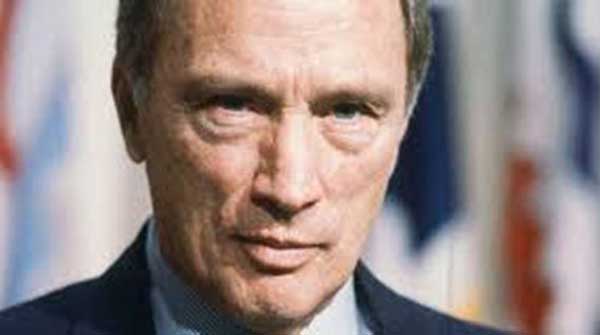Trudeau’s fourth and final term was to be his most controversial of all
 There was a whiff of unreality in the air as Canada’s 32nd parliament met for its inaugural session in the spring of 1980. Mere months earlier, Pierre Trudeau had been consigned to the political scrapheap and Joe Clark’s newly-minted Tory government was settling-in for what most people assumed would be a semi-decent run. Logically, it was the only scenario that made sense.
There was a whiff of unreality in the air as Canada’s 32nd parliament met for its inaugural session in the spring of 1980. Mere months earlier, Pierre Trudeau had been consigned to the political scrapheap and Joe Clark’s newly-minted Tory government was settling-in for what most people assumed would be a semi-decent run. Logically, it was the only scenario that made sense.
Then, in a stunning display of ineptness, Clark fell on a pre-Christmas budget vote, Trudeau rescinded his previously announced retirement, and Canada was plunged into a dead-of-winter election campaign that’s been described as “one of the strangest in Canadian history.” In it, Trudeau kept a studiously low profile, avoided the press where he could, and was duly rewarded by re-installment as prime minister. If you’d presented this scenario as a dramatic script, you’d have gotten marks for imagination.
 |
| Related Stories |
| Pierre Trudeau’s Cold War dossier shouldn’t have been destroyed
|
| The coronation of Pierre Trudeau
|
| Pierre would not be pleased with Justin’s folly
|
However, those who anticipated that a political near-death experience would produce a chastened Trudeau were in for a severe disappointment. Instead, his fourth and final term was to be the most controversial of all. It was almost as if he felt finally liberated to be fully himself.
The first order of business – winning the Quebec referendum campaign – went splendidly, after which it was on to the transformational agenda, beginning with the unveiling of the National Energy Program (NEP) in the October 28, 1980 budget. As events in the Middle East dramatically pushed up the world oil price, Trudeau set out to exercise federal authority over what was a provincial resource. In effect, the domestic price would be controlled and subsidized, while Ottawa’s share of the related revenue would more than double.
From Trudeau’s perspective, it all made eminent good sense. It fitted with his view of a fair and just national policy; it played to his economic interventionist instincts; it underlined the supremacy of the central government; it provided access to a cash cow for funding increasingly expensive federal programs; and it benefitted voters in Liberal-friendly Central and Atlantic Canada.
Understandably, though, Albertans thought otherwise. Oil was a provincial, not a federal, resource, and Trudeau was effectively expropriating their asset, something he wouldn’t think of doing with the assets of Ontario or Quebec. Even now, 35-plus years on, the bad memories rankle.
And ironically, it was all for naught. Underlying the NEP’s logic was the assumption that the world oil price would continue to rise. Trudeau-friendly biographer John English said this: “The assumptions about energy prices, so carefully crafted by a gaggle of econometricians, proved badly wrong.” As it often does, reality upended the confident prognostications of the smart guys.
But if the NEP’s substance proved short-lived, the same can’t be said for the Charter of Rights and Freedoms. For better or worse, it changed Canada, sometimes in ways that its drafters thought unlikely or even impossible. At bottom, it comes down to the vastly enhanced status of the Supreme Court. Important decisions that were previously the prerogative of elected legislatures can now be taken by unelected judges.
How one feels about that often depends on one’s reaction to the particulars of the specific issue. Human nature being what it is, it’s very easy to approve of judgements that one agrees with, regardless of their flying in the face of clearly expressed legislative intent.
Still, something nags. Overturning legislation that violates an explicitly stated Charter right is one thing, but doing so courtesy of judicial discovery of previously unstated rights is quite another. On the upcoming anniversary year of Magna Carta, casual dismissal of parliamentary supremacy should give us pause.
Then there was the matter of foreign affairs. With Margaret Thatcher’s and Ronald Reagan’s election wins, the international environment became substantially less congenial for Trudeau. Ideologically, he had no sympathy for their assertive anti-communism – which struck him as simpleminded and dangerous – while their views on the appropriate economic role of the state differed sharply from his own interventionist instincts.
And being who he was, Trudeau had no reluctance about expressing his personal disdain, something that Thatcher was perfectly happy to reciprocate. After she humiliated him at his final G7 summit in 1984, only Reagan’s personal kindness provided a touch of peer recognition.
Isolated abroad and politically tapped out at home, the intensely proud Pierre Trudeau faced a bitter exit.
Pat Murphy casts a history buff’s eye at the goings-on in our world. Never cynical – well, perhaps a little bit.
For interview requests, click here.
The opinions expressed by our columnists and contributors are theirs alone and do not inherently or expressly reflect the views of our publication.
© Troy Media
Troy Media is an editorial content provider to media outlets and its own hosted community news outlets across Canada.

